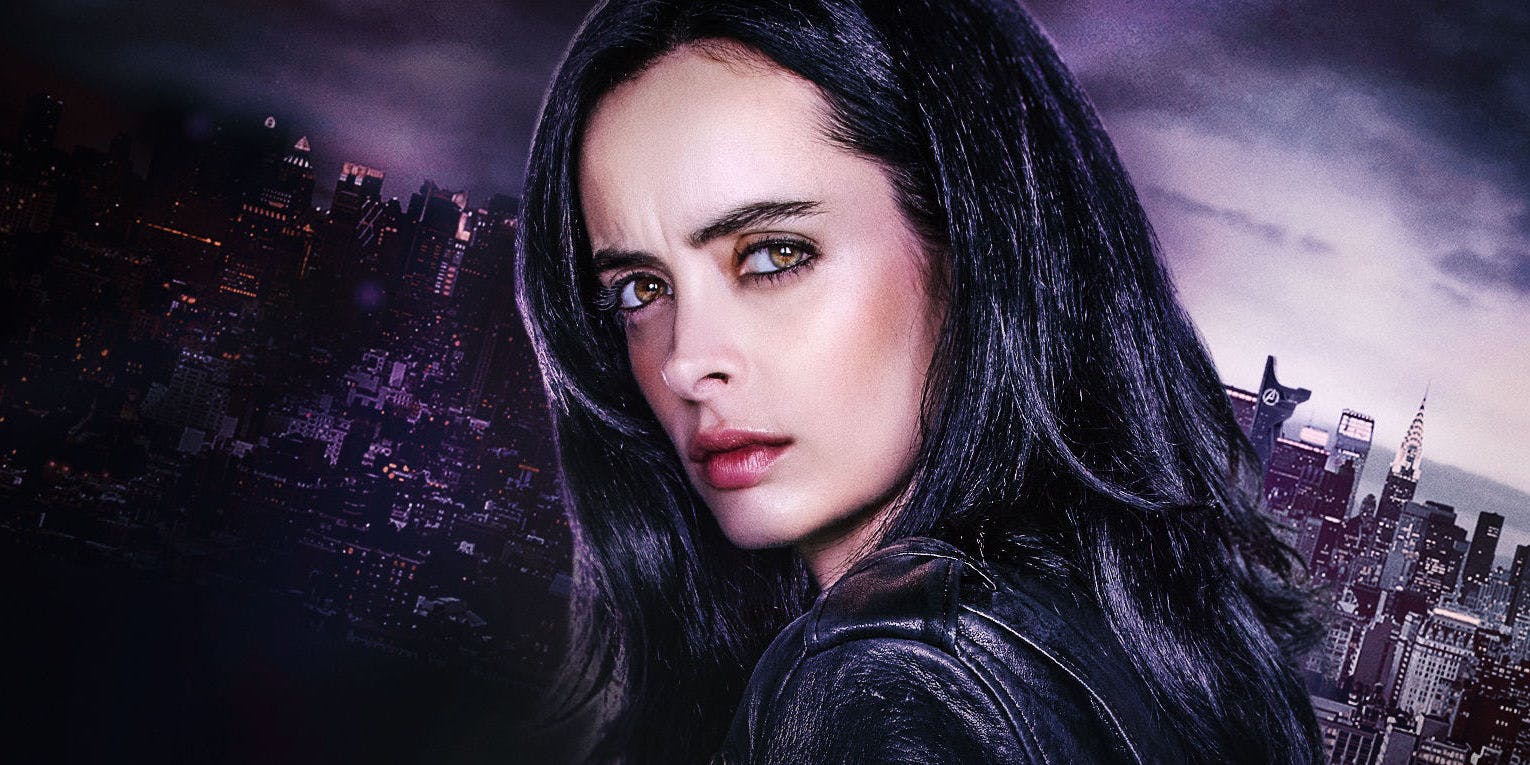In the universe of Marvel’s Jessica Jones, society is not friendly toward people with “abilities” – a.k.a. superheroes, super villains and regular Joes with hidden super-skills. These people storm across the city, leaving a trail of explosions, craters and frightened bystanders. People don’t know how to act around them.
There’s a scene midway through the show’s second season (which debuted in March on Netflix) wherein the eponymous superhero is drinking whiskey on her couch with a guy who, until basically that moment, seemingly hated people like her.
“How is it you are who you are?” he asks.
“That’s always the question,” she deadpans, staring straight ahead. “ ‘What are you, how did you end up like this and are you gonna kill me?’ ”
It’s the dejected response of one who’s sick of being “othered” – seen as foreign, curious, exotic and dangerous. The law discriminates against her. Society doesn’t accept her. People freak out when they meet her.
That Jones’s creator, like many comic-book masterminds, is Jewish shouldn’t surprise anyone. Societal exclusion is a common theme among Jewish artists. But Jews are in a better place now than a few decades ago, and other groups arguably have it worse: those who identify as gay, trans, black or Muslim in Western culture fight the same discriminatory battles from the fringes of society.
If anything, we, as Jews, stand more privileged among the discriminated against. At least we’ve assimilated pretty smoothly, for the most part. When we walk down the street, you can’t always tell that we’re “different” – kind of like superheroes.
The metaphor reaches back to the origins of comics. In the 1930s, Jerry Siegel and Joe Shuster, the sons of Jewish immigrants, created Superman. In the 1960s, Stan Lee (née Lieber) created Spider-Man, the X-Men, the Hulk and dozens more. Comic books were born during a time when anti-Semitism was far more potent, when heroes could celebrate being different and stand in solidarity with one another.
READ: MCMAFIA COULD HAVE BEEN THE RUSSIAN SHOW WE NEEDED
Jessica Jones was not born during that era. She was created in 2001 by Brian Michael Bendis, a Cleveland native who went to a private modern Orthodox boys school and met his wife through Hillel. The Netflix adaptation is helmed by Melissa Rosenberg, who rekindled her Jewish identity when she moved to New York City in her late teens.
While the show itself barely touches on Judaism (aside from a notably accurate shivah scene early in season 2), it nevertheless oozes with conventional Jewish themes, constantly questioning the correct moral answer to injustice in a seemingly godless world. Is killing ever justified? How do you react to prejudice?
Jones herself – like Clark Kent, Peter Parker and most superheroes with Jewish progenitors – is, of course, not Jewish. Like most superhero stories, religion rarely factors into their storylines at all. I can imagine plenty of reasons for this, but the main one is likely to cast them as blank slates, inviting fans from across the world to envision themselves in their shoes and behind their masks.
That universality is the key to their success. (This is the case financially, too: comic book movies are way easier to market overseas than, say, indie dramas, which is why cinemas these days are caught in a never-ending maelstrom of big-budget CGI explosions.)
And therein lies the paradox. Superheroes are renowned as unsung outcasts, working from the shadows, brimming with creativity and longing to fit in – and they’ve gone mainstream in the process.
It’s a good reminder for the Jewish community to embrace those same values of inclusion, respect and tolerance. Super-stories were once, decades ago, about us. Not so much anymore, but that doesn’t mean they’ve lost their meaning.
Besides, superheroes are stronger when they band together. If you need proof, go to any theatre in Canada and catch the latest Avengers movie.
